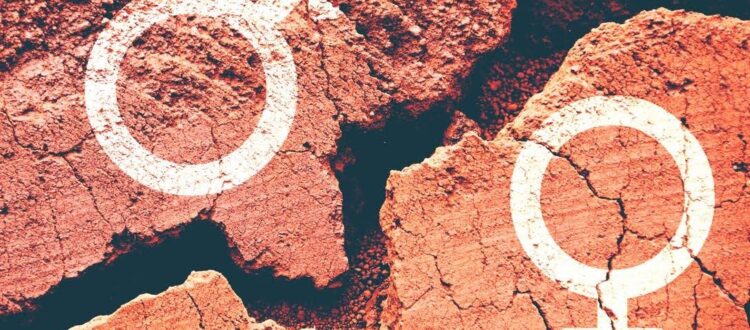GENDER ACTION PLAN: COP28 AND THE STEPS TAKEN ON GENDER ISSUES
- GAP (Gender Action Plan) work closed at COP28
- The hasty adoption of the text leaves unhappy about the lack of material time to discuss every detail of the text
- Finance and indigenous peoples remain the big issues excluded despite proclamations
At COP28, the work on ‘Gender and climate change’ was concluded with the adoption of the related final text. This strand of work entrusted to the Subsidiary Body for Implementation (SBI) develops and monitors the implementation of the enhanced Lima work Programme on Gender and the related Gender Action Plan. The focus of the discussions was the combination of equitable participation and climate policy implementation, as well as the development of gender-sensitive strategies and actions and their ‘mainstremization’ in all activities and with reference to all COP goals.
As reiterated by Brenda Akia (UN- CEDAW Committee), during the side event chaired by OHCHR at COP28, although women and girls are most impacted by climate change, they remain among the least equipped to cope with the consequences of the climate crisis. Women are also the most excluded from decision-making processes where strategies for adaptation and resilience to global warming are agreed upon, even though they are the ancestral bearers of knowledge and perspectives that are fundamental to ensuring effective, equitable and sustainable climate action.
Since 2014, which saw, thanks to the tireless work of civil society, the birth of the Lima Work Programme on Gender (LWPG), there have followed the adoption of the related Gender Action Plan (GAP) in 2017, the revision of the LWPG and the related GAP, and finally the adoption in 2019 at COP25 of 5 new years of the LWPG and GAP, which then form the subject of discussion at this COP. So, from ‘men [deciding] things’, rephrasing Rebecca Solnit’s words, to the integration of gender considerations into climate actions. Some progress seems to have been made. But is this really the case?
In this regard, it must be said that the text drafted at COP28 was adopted by most countries, but many expressed disappointment with the timing of the agreements and the agreed contents. On the one hand, many lamented the lack of material time to discuss every detail of the text. In fact, delegates only had three consultations (informal consultations) followed by two inf-inf (informal-informal consultations) to finalise the document that was supposed to be ready by 5 December. And they were slowed in their access to the negotiations by numerous logistical problems, starting with meeting rooms located far apart.
On the other hand, many negotiators pointed out that the text focused mostly on setting deadlines (deadlines) and guidelines for the submission of the various reports and input on the progress and priority areas of states in the run-up to COP29, excluding two key issues: (left in square brackets in the last drafts and finally removed from the final text):
- climate finance. As argued also by some developing countries, financial resources are essential for effective climate actions that respond to gender and women’s empowerment issues, otherwise there is a risk of strategies that perpetuate and fuel existing inequalities. Therefore, although already mentioned in the previous text approved at COP27, its explicit reiteration would have been appropriate.
- an intersectional mention to the women of indigenous peoples and local communities, who have always been at the forefront of addressing the climate crisis, and ancestral bearers of unprecedented knowledge on the management of ‘Mother Nature’. At this juncture, Bolivia, for example, expressed its disappointment citing the fact that its Focal Point on Gender is an indigenous woman and how she does not feel represented by this text. This approach smacks of pinkwashing considering the many initiatives and side events that dealt with the issue of representation of women from indigenous communities.
In essence, an unambitious and not very intersectional text, despite its importance. In fact, the cycle of this GAP will come to a close at COP29 and this means pulling the files of what has been done and laying the groundwork for future steps. Moreover, this strand is crucial to strengthen the fight against gender inequality in the new round of National Determined Contribution (NDC) planned by 2025. Currently, according to an analysis by the Women Gender Constituency, in the first round, only 64 countries out of 190 have mentioned gender considerations in their NDCs and they are all developed countries. Moreover, only 22 of these mention it across the board. But it is also crucial in view of the closing of the first round of Global Stocktake where ‘report cards’ will be awarded to states on the work done so far in this area as well.
We expect more ambition and concreteness from the states and the idea that we have to postpone once again until next year is not the most comforting given that in the meantime women continue to bear the burden and pay the price for this inertia.
Erika Moranduzzo, Human Rights Expert and Coordinator of the ‘Rights and Climate’ Section and Martina Rogato, COP28 Italian Climate Network Delegate and Co-Chair Women7 Italy
FCCC/SBI/2023/4, Report by the secretariat on the joint dialogue on advancing the leadership and highlighting the solutions of women from local communities and Indigenous women in climate policy and action; FCCC/CP/2023/4. Annual report by the secretariat on gender composition; FCCC/CP/2023/5 Biennial synthesis report by the secretariat on progress in integrating a gender perspective into constituted body processes; FCCC/SBI/2023/13. Report by the secretariat on the dialogue among the Chairs of UNFCCC constituted bodies on progress in integratinga gender perspective into their processes. Informal report on the in-session expert meeting held under activity D.1 of the gender action plan available at https://unfccc.int/documents/632419

